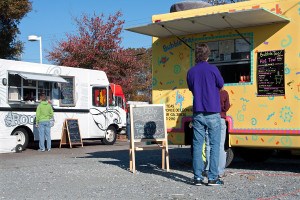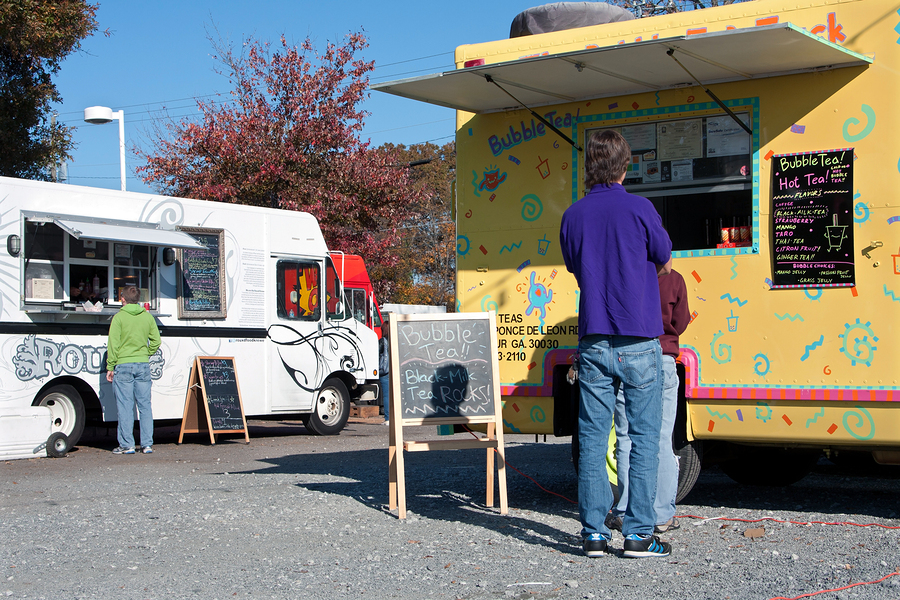The popularity of food trucks over recent years hasn’t waned, likely due to their mobility and trendy menu items. As the food truck industry grows, so do the fire risks.
The International Association of Fire Chiefs partnered with FEMA to present a webinar on September 21, 2015 on Fire/Life Safety Considerations for Street Vendors, Fairs and Festivals, in which much of the focus was on food trucks.
Michael Young, deputy fire chief – Operations for the Plymouth Fire Department in Massachusetts, explained that despite media reports covering food truck fires and explosions, there’s not enough awareness of the hazards associated with them.
One example was the 2012 Canadian National Expo, where a food truck explosion caused $30,000 in damage. Young cited several more examples that included a March 2015 Washington D.C. food truck explosion and the heavily publicized Philadelphia food truck propane explosion that killed two and injured 13 on July 1, 2014.
Young said that though food trucks appear to be a recent phenomenon, they have been a part of street and waterfront festivals as well as state fairs for years.
In 2014, The International Fire Marshals Association decided to research existing safety codes that could apply to food trucks. At that time, the association determined there was a need for increased awareness of the risks associated with operating a food truck.
For example, 20 pounds of propane is equivalent to 120 sticks of dynamite, Young said.
As food truck popularity continues to rise, more agencies are working to develop training and awareness programs. During its program development the New York City Fire Department raised concerns related to a black market for fraudulent permits. In addition, the agency was concerned that a food truck could be used as a weapon of mass destruction because of mobility and proximity to crowded venues.
There are several safety considerations that surround food trucks and their use of fuel-powered or electric generators.
Hazards to both food truck workers and firefighters include propane gas explosions, electrical shock, burns, exposure to hazardous materials and health issues from bacteria and spoiled food.
Operators and those investigating after food truck fire or explosion should consider the following:
- Licensing and inspection requirements;
- Permits for propane obtained;
- Zoning regulations for the area;
- Proper operating procedures in place;
- Testing for leaks completed.
In the event of an incident, determining who is responsible may not be easy, said Young.
The possibilities include an event sponsor or promoter, the vendor operator, a charity if it is part of a charitable event, and even a municipality, if it occurred during a town sponsored event.
Young said that despite these questions, public safety is paramount.
“Isn’t it more important to enforce code than to grant waivers,” asked Young, during the presentation.
He said codes, permits, and inspections will vary from state to state and even city to city, if they exist at all.
Anyone investigating a loss related to a food truck fire or explosion will need to determine the codes applicable, who has jurisdiction based on where the event took place as well as determining land ownership.
He said that permits can vary by jurisdiction but may include the following:
- Fuel storage – propane or other fuels used;
- Public safety;
- Fire suppression systems;
- Emergency access;
- Zoning.
On board fire suppression systems like hood suppression systems, portable fire extinguishers, hood, duct and exhaust fans in good operating condition are helpful but
Young stressed that vendors also need to know how to respond to a fire or propane leak.
Food truck safety is of real concern at festivals where large crowds form and where there may be limited access to the fire department and water, said Young.
Was this article valuable?
Here are more articles you may enjoy.


 When the Workplace Is Everywhere: The New Reality of Workers’ Comp Claims
When the Workplace Is Everywhere: The New Reality of Workers’ Comp Claims  UK Floods Raise Specter of ‘Mortgage Prisoners’ Across Banks
UK Floods Raise Specter of ‘Mortgage Prisoners’ Across Banks  Red Flags Adjusters Should Look for in Truck Accident Claims Investigations
Red Flags Adjusters Should Look for in Truck Accident Claims Investigations  Asbestos Lawsuits Prompt Vanderbilt Minerals to File Bankruptcy
Asbestos Lawsuits Prompt Vanderbilt Minerals to File Bankruptcy 